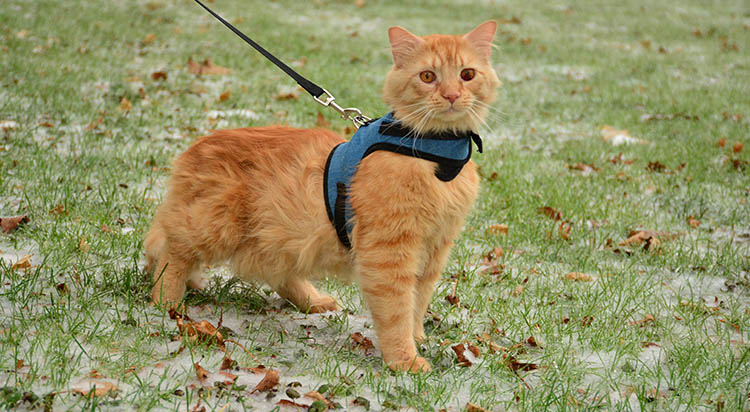Feline Diabetes
Just like humans, cats can develop diabetes. Diabetes mellitus is a condition in which your cat cannot properly produce or respond to the hormone insulin. This results in elevated levels of the sugar glucose, which is the main source of energy for the body.
Like the human body, the cells in a cat’s body need sugar in the form of glucose for energy. However, glucose in the blood requires insulin, a hormone produced by the pancreas, to “unlock” the door to cells. Insulin attaches to cells and signals when the time is right to absorb glucose. By absorbing glucose, cells in fat deposits, the liver, and the muscles get vital fuel while lowering levels of glucose in the blood.

In Type I diabetes, glucose concentrations are high because of a decrease in the production of insulin. In the case of Type II diabetes, glucose levels are high because cells in the body do not respond appropriately to insulin. Cats with diabetes most commonly suffer from the Type II form of the disease. Between 0.2 and 1 percent of cats in the general population are believed to suffer from diabetes.
Risk Factors of Diabetes in Cats
- Obesity
- Increasing age
- Physical inactivity
Diagnosing Diabetes
If we suspect your cat may have diabetes, we will perform diagnostic testing of glucose concentrations in your cat’s blood and urine. We will also talk to you about whether your cat is exhibiting any of the signs of diabetes in cats.
Signs of Diabetes in Cats
- Weight loss
- Excessive Thirst and Urination
- Problems With Hind Limbs
Treatment
The goals of treating cats with diabetes include:
- Restoring normal blood glucose concentration (glycemic control)
- Minimizing or eliminating signs of weight loss
- Minimizing or eliminating signs of increased thirst and urination
- Normalizing the appetite
- Avoiding inducing inappropriately low blood glucose levels with therapy
Insulin Therapy
Cats with diabetes are most often treated with injectable insulin. We will work with you so that you may administer your cat’s insulin at home. A good example of how to administer an insulin injection to your cat is included below.
Dietary Management
We will talk with you about the proper diet for your diabetic cat. It is important to help your cat combat the weight loss that often occurs as a result of this disease. If your cat is overweight, however, we will work with you to institute a weight loss program. Managed weight loss in overweight diabetic cats will likely help the cat maintain steadier glucose levels.
Prognosis
While there is no cure for feline diabetes, this disease can usually be managed fairly well with appropriate education and support of owners. Cats with well-controlled diabetes can live many years of high quality life. Some cats may lose their need for insulin treatments (termed “remission”), but even in these cases it is recommended that owners continue to monitor for the recurrence of clinical signs of diabetes and keep the cat on a low carbohydrate diet.
Please call us if your cat is exhibiting any signs of feline diabetes or if you have any questions about your cat’s health.

